Prøve GULL - Gratis
GALILEO vs The Inquisition
All About History UK
|Issue 132
How the revered astronomer went head to head with the might of the Catholic Church

Galileo di Vincenzo Bonaiuti de' Galilei was born in Pisa, then in the Duchy of Florence, in 1564. Commonly known as Galileo, he is credited with being one of the greatest scientific minds of the 16th and 17th centuries and is sometimes referred to as the 'father of modern science'. However, during Galileo's lifetime he would not have been referred to as a scientist. He was a polymath: a natural philosopher, mathematician and astronomer. Attending the University of Padua, initially to study medicine but later mathematics, Galileo honed his scientific knowledge before beginning to lecture and theorise for himself. In astronomy, he made advances that redefined the way we've understood the universe ever since. Although it is a common misconception that Galileo invented the telescope (it was actually invented in the Netherlands in 1608), he did utilise the new equipment to discover the four moons of Jupiter, the phases of Venus and that the Moon was covered in craters and mountains. Yet it wasn't any of these groundbreaking findings that he would have to defend when he came up against one of the most powerful institutions in the Italian states.
Founded in the 12th century, the Inquisition was a collection of Catholic organisations across Europe that operated with the aim of rooting out heresy and heretics across the continent.
The most infamous incarnation of the Inquisition was established in Spain in the 15th century and was known for its extreme and brutal methods. In the papal state of Rome, however, the Roman Inquisition saw a renewal in 1542, largely in response to the Counter-Reformation that was sweeping across Europe. In comparison to the Spanish Inquisition, the Roman branch was much more moderate in its pursuit of heretics, but this did not diminish its power or the fear it inspired.
Denne historien er fra Issue 132-utgaven av All About History UK.
Abonner på Magzter GOLD for å få tilgang til tusenvis av kuraterte premiumhistorier og over 9000 magasiner og aviser.
Allerede abonnent? Logg på
FLERE HISTORIER FRA All About History UK
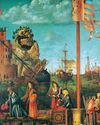
All About History UK
Medieval Pilgrimages
From penance to indulgence, everything you need to know about Christian holy journeys in Middle Ages Europe
9 mins
Issue 159
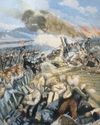
All About History UK
MUKDEN 1905
MUKDEN, MANCHURIA, CHINA 23 FEBRUARY - 10 MARCH 1905
11 mins
Issue 159
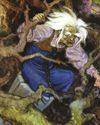
All About History UK
BEWARE BABA YAGA
Folklore expert Willow Winsham explains the history behind the mystery of this fearsome witch from Slavic legend
8 mins
Issue 159
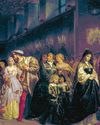
All About History UK
ROYAL SCANDALS
THAT THREATENED THRONES
11 mins
Issue 159
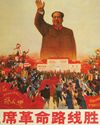
All About History UK
DISASTER PLAN
How a lethal mixture of arrogance, fear and blind faith condemned millions of Chinese to death
10 mins
Issue 159
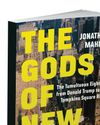
All About History UK
THE GODS OF NEW YORK
How a decade of turmoil shaped the Big Apple
1 mins
Issue 159
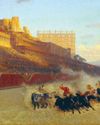
All About History UK
LOST ANCIENT SPORTS
Professor Peter J Miller discusses which ancient sporting traditions have continued into our modern world and which have been lost to time
4 mins
Issue 159
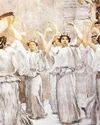
All About History UK
TERRACOTTA PANATHENAIC PRIZE AMPHORA
This ancient vase holding precious olive oil was gifted to the victors of an ancient athletic contest
1 mins
Issue 159
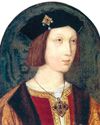
All About History UK
HENRY VIII HAD DIED YOUNG?
Without England's most notorious Tudor king, the country's religious and political history would've looked very different
6 mins
Issue 159
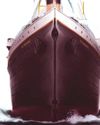
All About History UK
TITANIC MAKING AND BREAKING THE SHIP OF DREAMS
Uncover the inherent flaws and misplaced confidence that allowed a catastrophe to unfold
12 mins
Issue 159
Translate
Change font size
